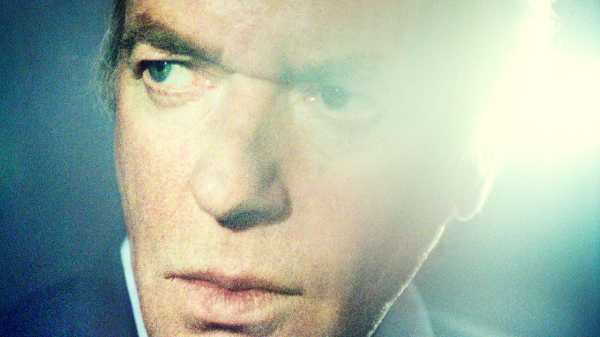
Save this storySave this storySave this storySave this story
A friend may ripen over the years into a sibling, and after forty-nine years I’ve lost a brother. Martin Amis’s reputation in the press—as coruscating wit, intellectual cool dude, controversialist—hardly touched the surface. Close up, he was tender, generous, warm, and heroically funny. His memory for people and past conversations was long. He was sweet and uncondescending with children and teen-agers. No journalist could have known or guessed that there was something magnificent about his last few months. Amid such suffering, he had no capacity for complaint or discussion of symptoms. He wanted nothing more than to get himself as comfortable as possible for a day of reading or time with close family. “I have no metaphysical fear of death,” he wrote to me, and then added, as if with a self-ironic smile, “(YET).” That fear never came, and I think he gave us a lesson in how to die—and in how to read him.
As a writer, too, he was fearless and superbly self-confident. An impostor once wrote a letter to Private Eye signing Martin’s name. To set the record straight, Martin began his own letter to the magazine with “I don’t write like that. I write like this.” Then he proceeded to demonstrate. The recent global outpouring of praise has been pleasing, but, for much of his life, Martin had to bear a venomous press. Journalists longed to be him, and, when fate denied them that role, they turned on him, portraying him, for example, as a vain fool who spent tens of thousands of dollars on his teeth. He took this as he did his cancer—without complaint. Years later, he told the story in his memoir, “Experience.” No British dentist knew how to operate to resolve the serious condition of his teeth and gums. A dental surgeon in New York made the attempt and came close to needing to remove Martin’s jaw. Back in London, the vanity-teeth story took a long time to die, but Martin never pushed back.
As a novelist, he created a unique style, rhythmically and musically compelling, profoundly and often bleakly comic, and rich in social commentary. His prose was thick with superb neologisms and startling or beautiful imagery. He was a master of the lightning paradox. Thematically, he ranged from sexual mayhem to the routine distortions of the tabloid press to the descent into madness and industrialized cruelty of the Holocaust and the deepest depredations of Stalinism.
Martin was a very serious reader, right to the end. In his final months, he read the complete works of Edith Wharton. He wrote two weeks ago to say that he could no longer read with a pencil in his hand. That may have been his one important concession to his illness. Beyond the critical essays and journalism was a lovely taste for mischief, such as his proposal (made when he himself was in his sixties) for “euthanasia booths” for the elderly at the end of every street, which, to his wry amusement, prompted outrage and po-faced “thought pieces” in the British press. My favorite among many glorious Amis riffs was in a Q. & A. session. He was asked about the worst thing that had ever happened to him. He responded gravely that what truly wearied and bored him was that, when he returned home from a book tour, he was obliged to patiently explain to his family that henceforward the trailing end of the toilet paper must always be folded in a V, the way it was in American hotels.
Somehow, we will have to make do without this free spirit, who, in serious and comic modes, embodied all the possibilities of the unfettered imagination. In essence, the body of work he leaves behind is deeply humane. Like Dickens, he loved and revelled in the wild eccentricities of human nature. In the community of letters, Martin will become over time a brother to all his readers. ♦
Sourse: newyorker.com






